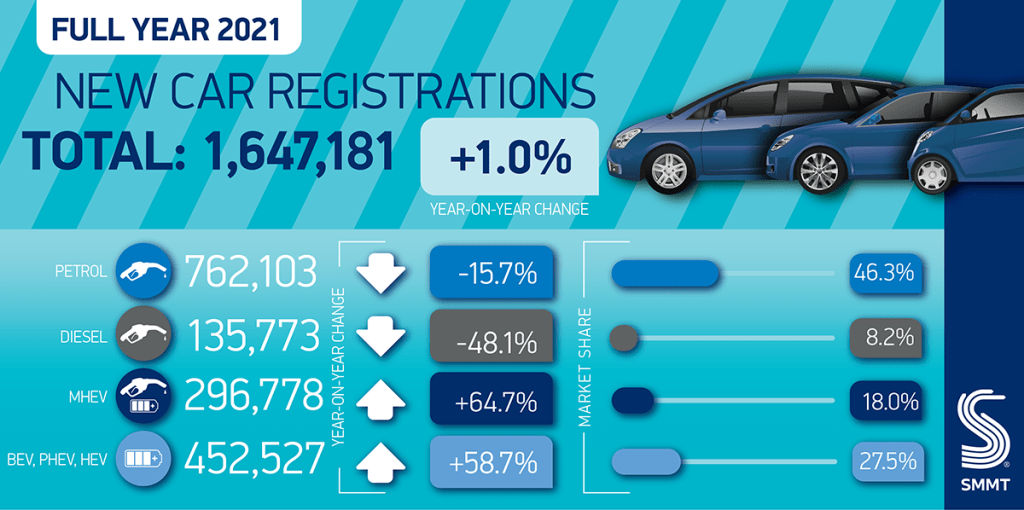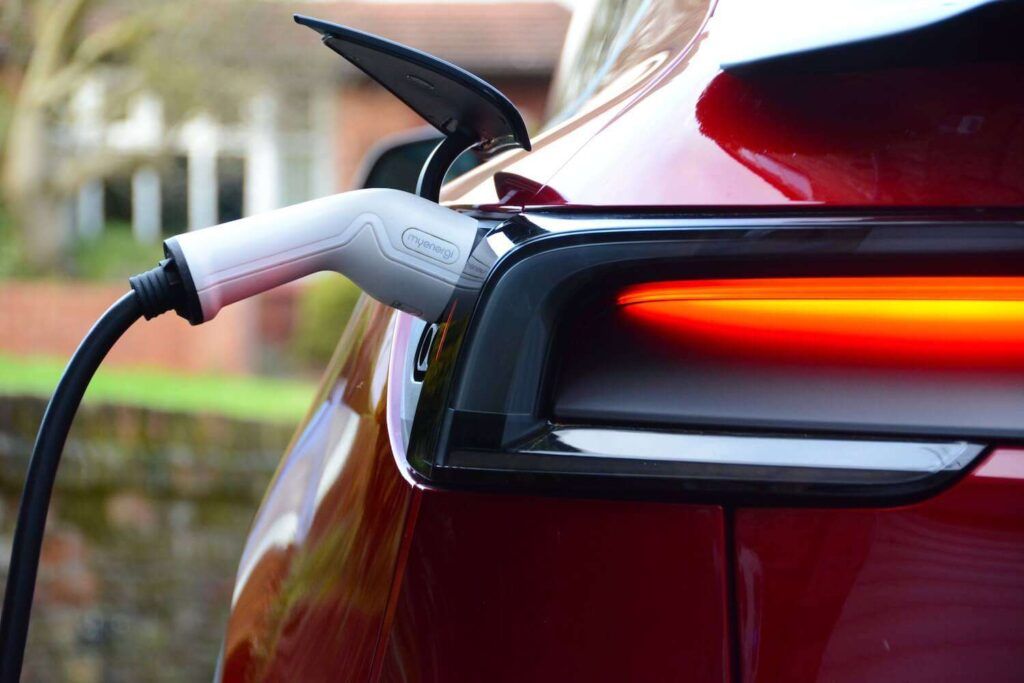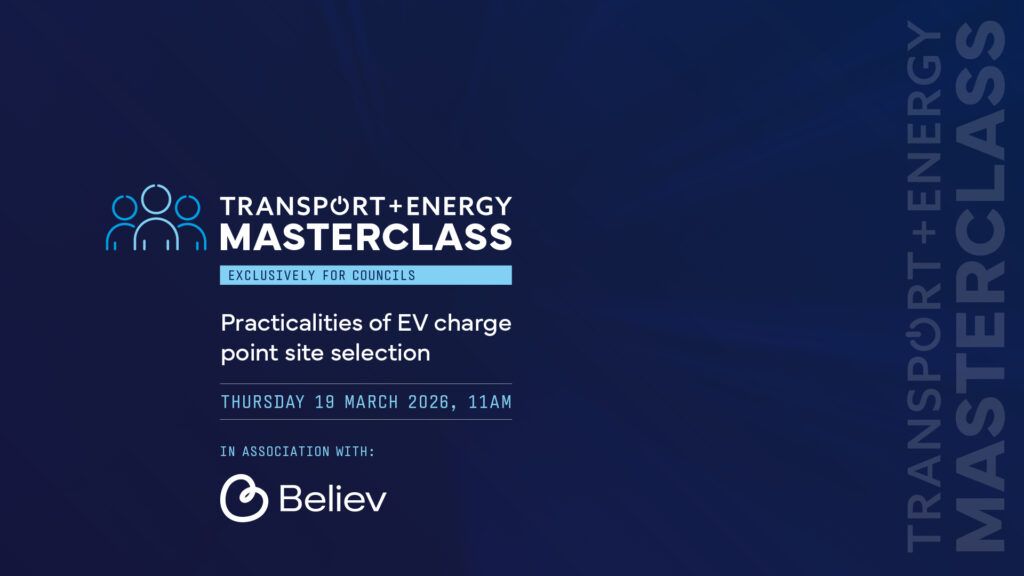2021 was the most successful year in history for electric vehicle uptake as more new battery electric vehicles (BEVs) were registered than over the previous five years combined, according to new figures from the Society of Motor Manufacturers and Traders (SMMT).
190,727 new BEVs joined Britain’s roads, along with 114,554 plug-in hybrids (PHEVs), meaning 18.5% of all new cars registered in 2021 can be plugged in.
This is in addition to the 147,246 hybrid electric vehicles (HEVs) registered which took a further 8.9% market share in a bumper year for electrified car registrations, with 27.5% of the total market now electrified in some form.
2021 overall new car registrations grew by a marginal 1.0% on a pandemic-ravaged 2020, as 1.65 million new cars entered the UK market.
The figures underline the ongoing impact of Covid and the semiconductor shortage on the industry, with the market down -28.7% on pre-pandemic 20191, representing the second worst year since 1992.
Following billions of pounds of investment into new technology by manufacturers, more than 40% of models are now available as plug-ins. Indeed, the shift in customer preference for these new technologies continues apace, with December seeing BEVs take a record market share in a non-locked down trading month, accounting for 25.5% of all new registrations.
Mike Hawes, SMMT Chief Executive, said: “It’s been another desperately disappointing year for the car industry as Covid continues to cast a pall over any recovery. Manufacturers continue to battle myriad challenges, with tougher trading arrangements, accelerating technology shifts and, above all, the global semiconductor shortage which is decimating supply.
“Despite the challenges, the undeniable bright spot is the growth in electric car uptake. A record-breaking year for the cleanest, greenest vehicles is testament to the investment made by the industry over the past decade and the inherent attractiveness of the technology.
“The models are there, with two of every five new car models now able to be plugged in, drivers have the widest choice ever and industry is working hard to overcome Covid-related supply constraints.
“The biggest obstacle to our shared net zero ambitions is not product availability, however, but cost and charging infrastructure. Recent cuts to incentives and home charging grants should be reversed and we need to boost the roll out of public on-street charging with mandated targets, providing every driver, wherever they live, with the assurance they can charge where they want and when they want.”
Melanie Shufflebotham, Founder and COO of Zap-Map, said: “Electric vehicles are now the norm. Sales accelerated throughout 2021 and so did the public charging infrastructure. There are nearly 30,000 public chargers in the UK, an increase of more than a third since the end of 2020. And the number of ultra-rapid chargers which are key for drivers who need to top up miles quickly increased especially fast — 65% growth in the year.
“Charge points are now a common site are your local supermarket, service station, restaurant and retail park, and our research shows drivers who have made the leap to electric have no urge to go back. But we do need charging to keep growing at pace this year to make sure charging is simple for the next generation of EV drivers.”
Image: courtesy SMMT












